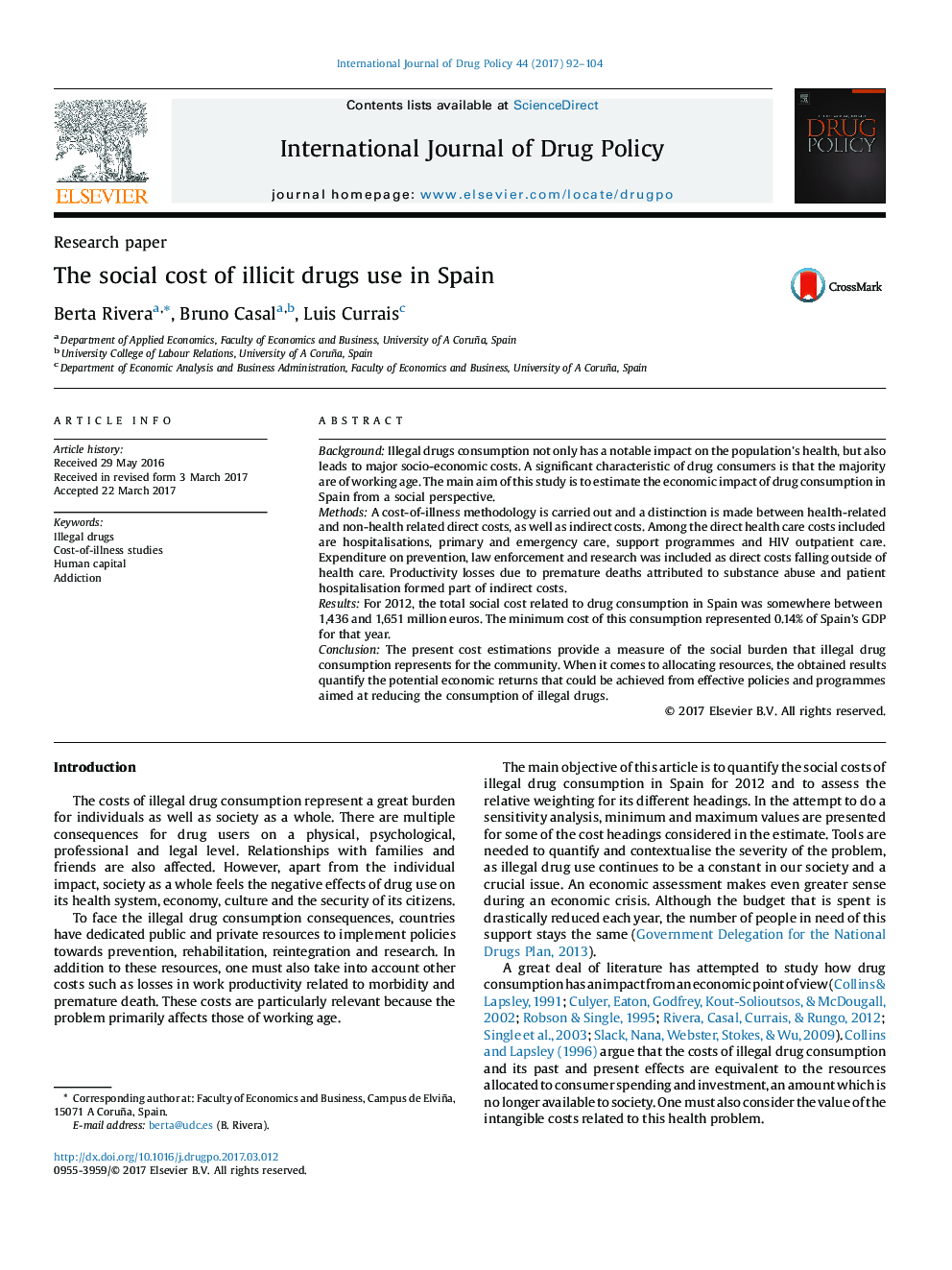| Article ID | Journal | Published Year | Pages | File Type |
|---|---|---|---|---|
| 5120753 | International Journal of Drug Policy | 2017 | 13 Pages |
BackgroundIllegal drugs consumption not only has a notable impact on the population's health, but also leads to major socio-economic costs. A significant characteristic of drug consumers is that the majority are of working age. The main aim of this study is to estimate the economic impact of drug consumption in Spain from a social perspective.MethodsA cost-of-illness methodology is carried out and a distinction is made between health-related and non-health related direct costs, as well as indirect costs. Among the direct health care costs included are hospitalisations, primary and emergency care, support programmes and HIV outpatient care. Expenditure on prevention, law enforcement and research was included as direct costs falling outside of health care. Productivity losses due to premature deaths attributed to substance abuse and patient hospitalisation formed part of indirect costs.ResultsFor 2012, the total social cost related to drug consumption in Spain was somewhere between 1,436 and 1,651 million euros. The minimum cost of this consumption represented 0.14% of Spain's GDP for that year.ConclusionThe present cost estimations provide a measure of the social burden that illegal drug consumption represents for the community. When it comes to allocating resources, the obtained results quantify the potential economic returns that could be achieved from effective policies and programmes aimed at reducing the consumption of illegal drugs.
